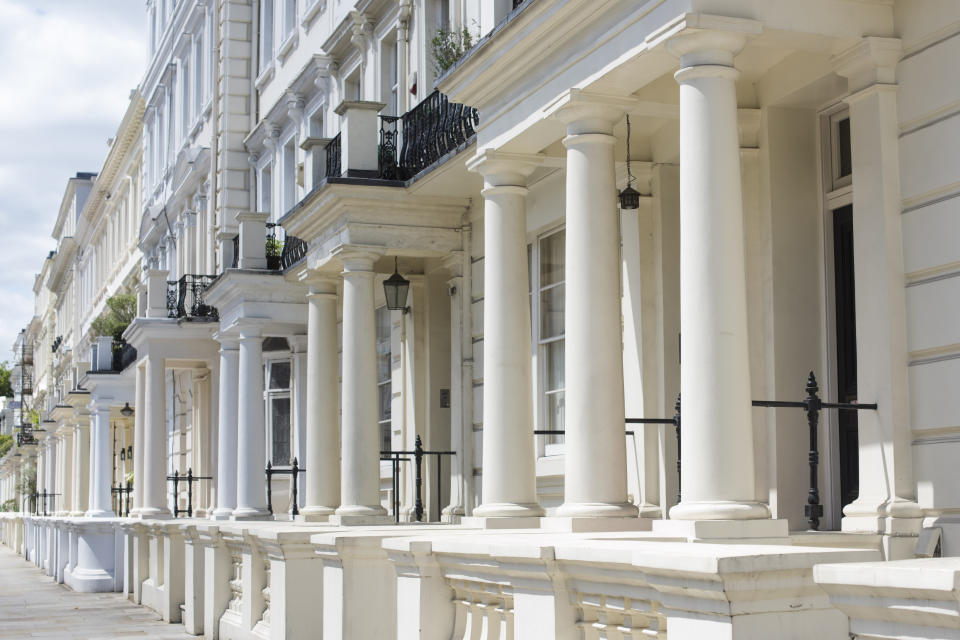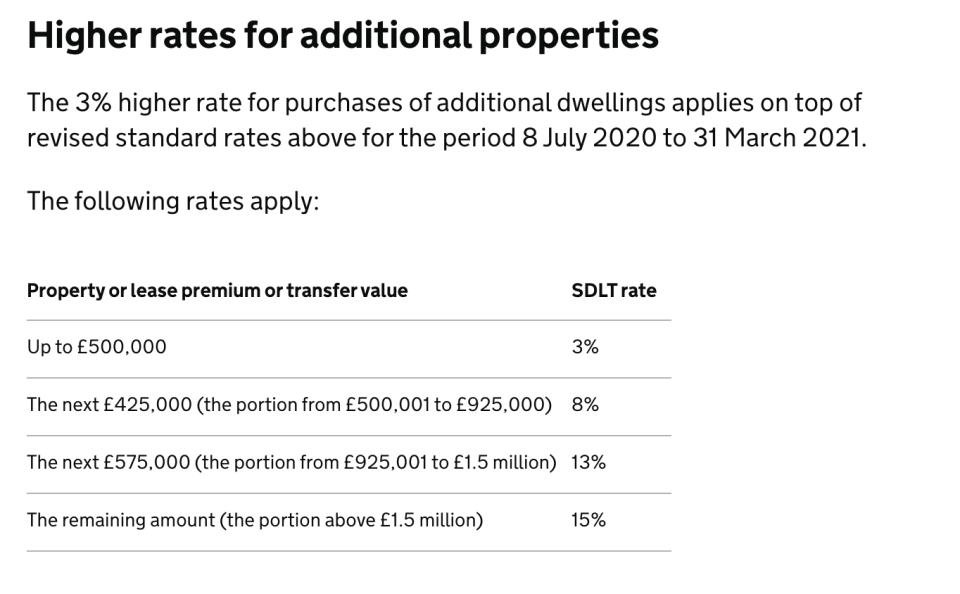Coronavirus: Stamp duty cuts a 'huge bung' to second homeowners

Labour claims stamp duty cuts are a “huge bung” to second homeowners and landlords, after it emerged they would be be able to benefit from the UK government’s plans.
Chancellor Rishi Sunak confirmed in his summer statement that buyers will not pay the tax on home purchases under £500,000 ($627,258) in England and Northern Ireland. It will apply from 8 July to 31 March next year. The threshold had previously been £125,000, albeit with higher thresholds for first-time buyers.
Sunak said the measure would “catalyse the housing market and boost confidence” as part of its wider measures to revive Britain’s coronavirus-hit economy. The measures lifted estate agent and housebuilding stocks and will be welcomed by many in the industry and by buyers.
The Treasury expects the plans to cost £3.8bn, but Labour claims its own analysis suggests up to £1.3bn will benefit landlords and buyers of additional homes. They will continue to pay an existing 3% surcharge for additional properties, however. This means the 3% higher rate for purchases of additional dwellings applies on top of revised standard rates for the period 8 July 2020 to 31 March 2021.
READ MORE: What stamp duty changes mean for the property market
Shadow housing secretary Thangam Debbonaire called it an “unnecessary subsidy for second homeowners.” She said the funds would be better used fixing shortfalls in local council finances during the pandemic.
“He should be targeting support to those who need it, not helping people invest in buy-to-let properties and holiday homes,” she added.
The Labour MP also argued it would “worsen the housing crisis” by reducing the supply of first homes.
But the Conservative party’s co-chair Amanda Milling accused the opposition of trying to “score political points,” and claimed it lacked a plan for the economy.
“It beggars belief that Labour is against plans to help thousands of families across the country,” she said. “Our plans mean 90% of people getting on or moving up the property ladder will pay no stamp duty at all.”
Treasury analysis also suggests the average buyer will save £4,500. The government expects the measures to “maintain the growing momentum since the easing of lockdown” in the property market.
Official papers argue this will protect and create housebuilding jobs, as well as driving additional consumer spending as buyers kit out new homes.
“The housing market has been hit hard by the outbreak with 175,000 missing sales – so we are doing everything we can to get the country moving again,” said a Treasury spokesperson. “Our cut in stamp duty will help drive growth and support jobs across the housebuilding and property sectors.”
READ MORE: UK government announces stamp duty holiday to boost property market
But left-leaning think tanks have also questioned the government’s priorities. Luke Murphy, associate director of the Institute of Public Policy Research (IPPR), said the measures would benefit existing homeowners most if they pushed up prices.

He said the reforms, alongside the government’s plans to deregulate planning, “will do nothing to deliver the high-quality, secure and affordable homes that the country needs.”
The biggest savings are likely in regions where property prices are higher. The estate agent Barrow and Forrester has calculated how much average buyers will save in every local authority, and said Londoners would save £14,290 on the typical purchase.
“The average buyer in the north-east will see no gain from the holiday,” noted the Resolution Foundation.
Others have argued Britain’s economic troubles were significant enough that tax cuts may barely lift demand at all. “It’s questionable whether this will have the effect people think it will, given that economic uncertainty tends to temper the appetite of most people to make large-scale changes of this kind,” said Michael Hewson, chief analyst at CMC Markets.

 Yahoo Finance
Yahoo Finance 